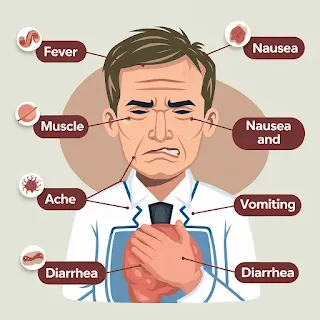Listeria symptoms
Listeria: A Serious but Rare Foodborne Illness
Listeria is a type of bacteria that can cause a serious illness called listeriosis. While listeriosis is relatively rare, it can be particularly dangerous for pregnant women, newborns, adults 65 years or older, and people with weakened immune systems.
What is Listeria?
Listeria monocytogenes is the most common type of Listeria bacteria that can cause illness in humans. These bacteria are found in soil, water, and the intestines of animals, including healthy ones. They can also be found on fruits, vegetables, and other foods.
How is Listeriosis Spread?
Listeriosis is usually spread through contaminated food. This can happen when:
- Foods are contaminated during processing or production
- Foods are not cooked or pasteurized properly
- People do not practice good hygiene when handling food
What are the Symptoms of Listeriosis?
The symptoms of listeriosis can vary depending on the person's age and immune system. In general, symptoms may include:
- Fever
- Muscle aches
- Headaches
- Nausea
- Vomiting
- Diarrhea
- Stiff neck
- Confusion
- Seizures
Who is at Risk for Listeriosis?
Certain groups of people are at a higher risk for listeriosis, including:
- Pregnant women
- Newborns
- Adults 65 years or older
- People with weakened immune systems
How is Listeriosis Treated?
Listeriosis is treated with antibiotics. However, the illness can be serious, and complications can occur. It is important to seek medical attention if you have symptoms of listeriosis.
How Can You Prevent Listeriosis?
To help prevent listeriosis, follow these tips:
- Cook foods to their recommended internal temperatures.
- Pasteurize milk and dairy products.
- Wash fruits and vegetables thoroughly.
- Avoid eating raw or undercooked meats and poultry.
- Practice good hygiene when handling food.
By taking these precautions, you can reduce your risk of contracting listeriosis.






.jpeg)
.jpeg)



